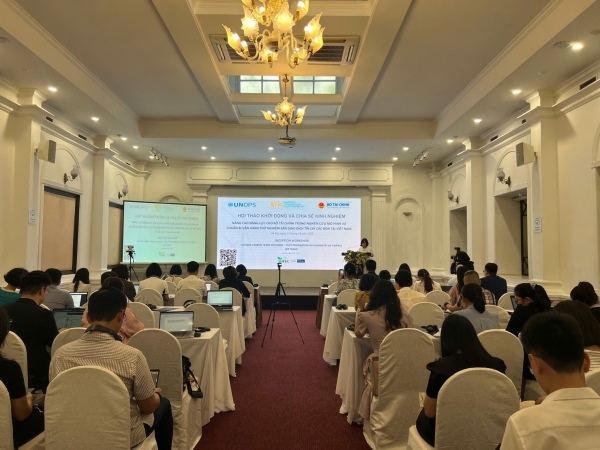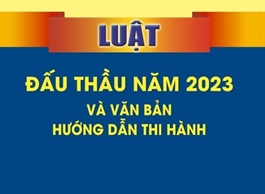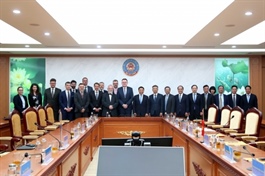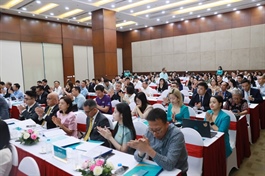MoF taps global expertise to launch carbon exchange pilot
MoF taps global expertise to launch carbon exchange pilot
The Ministry of Finance (MoF), in collaboration with the Southeast Asia Energy Transition Partnership and United Nations Office for Project Services, organised a workshop in Hanoi on April 22.
|
The workshop is part of the technical assistance initiative to research models and prepare for a pilot scheme for a carbon credit exchange in Vietnam.
To Nguyen Cam Anh, deputy director of the Department of Legal under the MoF, said, "The ministry has been tasked with leading and coordinating with the Ministry of Agriculture and Environment, along with other relevant ministries and agencies, to establish a domestic carbon market. Several legal documents have been issued and enforced to prepare for establishing a legal framework for greenhouse gas (GHG) emission reduction activities."
"The ministry hopes to receive valuable feedback and proposals from experts, scientists, and representatives of ministries, agencies, and organisations to continue researching and proposing feasible and effective methods for organising and implementing the carbon exchange," Cam Anh added.
According to the Department of Legal Affairs, the pilot carbon market will run nationwide from 2025 to 2028. During this phase, GHG emission quotas will be studied and considered for free allocation, and carbon credits will be verified for trading on the exchange. Credits obtained from projects under domestic carbon credit exchange and offset mechanisms, the Clean Development Mechanism, the Joint Crediting Mechanism, and mechanisms under Article 6 of the Paris Agreement will be eligible. The proportion of carbon credits used to offset GHG emissions will be regulated by the government.
The full carbon market is expected to operate nationwide from 2029. The types of sectors and facilities allocated emission quotas, carbon credits traded on the exchange, and the entities participating in trading will be expanded. GHG emission quotas will be allocated both for free and through auctions. The proportion of carbon credits used to offset emissions, relative to the total allocated quotas for facilities, will be determined by the government.
To prepare for this roadmap, developing and refining the legal framework is of utmost importance. The government will revise and supplement Decree No.06/2022/ND-CP on carbon credit management, facilities allocated quotas, and market participants; develop a decree on the domestic carbon exchange; establish regulations and organise evaluations and certifications for activities and projects under international carbon credit exchange and offset mechanisms; and formulate a decision to issue the total GHG emission quotas for each phase and annually.
Experts attending the workshop shared their experiences of organising and operating carbon exchanges in the US state of California, the United Kingdom, and China, while also recommending several applicable points for Vietnam.
Michael Mehling, an expert from the Massachusetts Institute of Technology, said, "Vietnam should continue to prioritise strengthening management capacity to address the complexity of the system and ensure effective and informed participation of stakeholders. Developing a strategy for implementing an Emissions Trading System in phases, starting with a pilot phase and gradually expanding by sector, will help mitigate risks in the initial stages."
- 18:09 23/04/2025





























